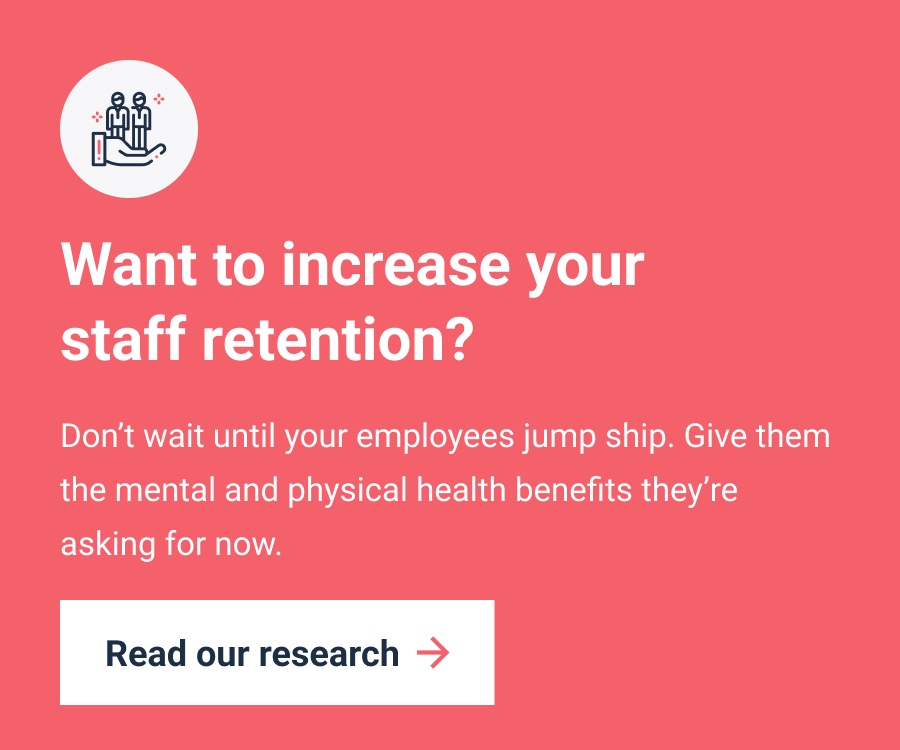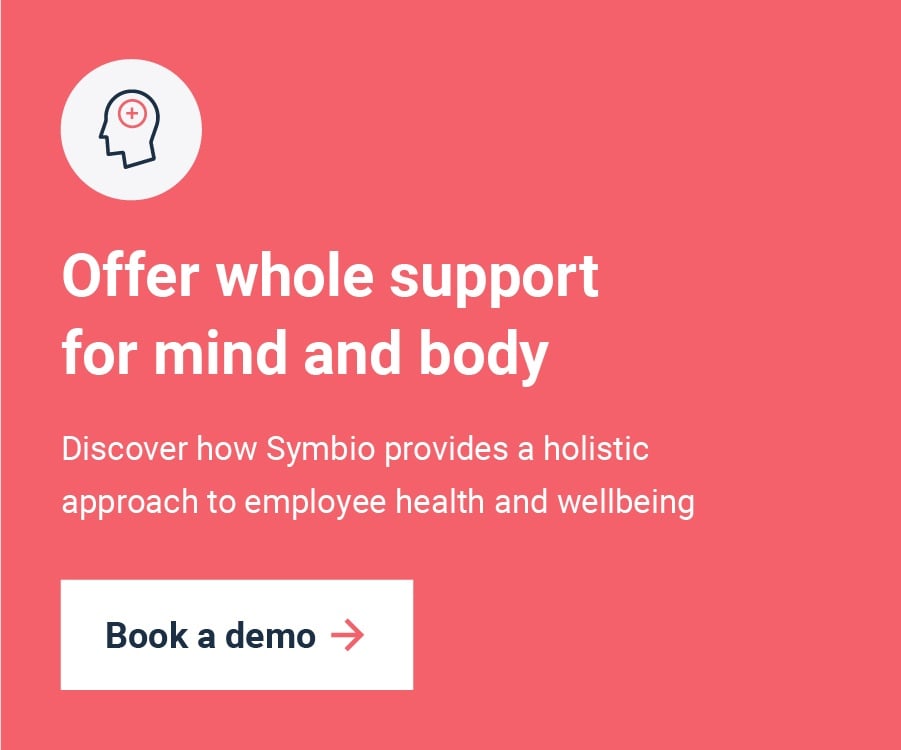Low mood, lack of motivation, decreased attention span - the January blues are here.
This bleak phenomenon causes people to feel run down, lethargic and unable to sleep. These feelings can last for just a short while, or for the whole of winter. But for many, they tend to reach their peak in January. And the third Monday of January is commonly referred to as ‘Blue Monday’.
While this term originated as a marketing idea, it speaks to a very real combination of:
- running out of money before payday following the Christmas splurge,
- collapsing New Year resolutions,
- and persistent gloom in the UK weather.
The January blues are more than just a stubborn Christmas hangover. They’re a real mental condition that affects a person’s health. So, what can you do as an employer to support your employees’ wellbeing during this difficult month?
What causes the January blues?
Often, the cause behind the January blues is a type of depression known as Seasonal Affective Disorder (SAD). Sometimes called ‘winter depression’, SAD is most prominent during the cold days and dark mornings of January. And it doesn’t just affect a small group of us - around two million people in the UK suffer from SAD.
We’ve probably all felt a bit down at this time of year, but SAD involves a persistent low mood, as well as other symptoms including:
- A loss of pleasure or interest in normal everyday activities
- Feelings of despair, guilt and worthlessness
- Feeling lethargic and sleepy during the day
- Finding it hard to get up in the morning
- Craving carbohydrates and gaining weight
- Difficulty concentrating
As well as SAD, another cause of the January blues might simply be the sobering aftermath of Christmas. For those who celebrate, the build up to Christmas and the new year can be both exciting and stressful. Once the season is over however, the excitement is gone, and people often end up feeling exhausted and low.
Whatever the cause for your employees, what’s important is offering them the right support for both their mental and physical health. And there are plenty of ways you can do this in your workplace.
How to tackle the blues - 3 things you can do at work
1. Acknowledge the problem
The first step to solving a problem is acknowledging there’s a problem. Taking the initiative and opening up a meaningful dialogue around mental health concerns will help your employees feel cared for and make them more likely to seek support.
A couple of ways you can do this for the January blues include:
- Starting the conversation by regularly checking in with your staff’s mental state. You could do this through scheduled one-to-ones with managers. Or alternatively, create environments where employees feel comfortable talking with each other. Hold a coffee morning once a week, for example, or start up employee resource groups where they have a safe space to air their worries.
- Sharing tips to tackle the problem. You could do this as part of a monthly newsletter or set up a dedicated Slack channel for dealing with winter depression. Tips could include lifestyle changes like staying active, eating healthily and going outside. You might also recommend products to buy that can make things easier, such as a daylight lamp which simulates sunlight.
2. Get out in the sun
While a daylight lamp can help when it’s dark, it doesn’t quite beat the real thing.
Try encouraging your employees to go outside and soak up some sunshine during the working day, even if it’s for a quick walk near your office (or their house, if they work from home). Doing this at midday when it’s brightest is best.
The ultraviolet rays in sunlight hitting your skin cause it to manufacture vitamin D, which is an essential nutrient. The benefits of vitamin D are well-researched - it keeps your bones, teeth, and muscles healthy by regulating the amount of calcium and phosphate in the body.
But aside from keeping you strong, sunlight also has other wellbeing benefits including:
- Improving your sleep by regulating your circadian rhythm. This tells your body when to increase and decrease your melatonin levels, which help you sleep.
- Reducing stress by supporting the production of serotonin. Sunlight entering through the eye prompts the brain’s release of serotonin, which can boost your mood and make you feel more alert.
- Strengthening your immune system. The vitamin D from sunlight boosts your immune cells’ production of microbe-fighting proteins.
3. Extend access to clinically valid advice
Giving your employees access to medical advice and services is important. But what’s more important is providing them with the right advice and services.
With a digital employee wellbeing app like Symbio, you can grant your employees access to clinically valid and medically verified advice around navigating seasonal depression. This includes:
- Resources around healthy habits like regular physical activity and eating a nutritional diet.
- Access to on-demand medical services if things start to become too much.
- Regular in-app assessments to provide accurate improvement plans.
Digital wellbeing apps are a good choice to support your employees because they cater to individual needs. An app like Symbio uses personal data to provide resources that are appropriate for each employee.
Break out of the blues
With 20 percent of people experiencing symptoms of depression in the winter, it’s important that you’re aware of the difficulties that might be affecting your employees.
While increasing your wellbeing support during January is important, make sure you continue offering wellbeing support year round. Encourage regular breaks, a good work/life balance and healthy eating. All these contribute to holistic wellbeing and can help your employees to better deal with tough times when they do roll round.
And if you’re looking for an intuitive, digital way to offer wellbeing support, explore Symbio by booking a demo.






